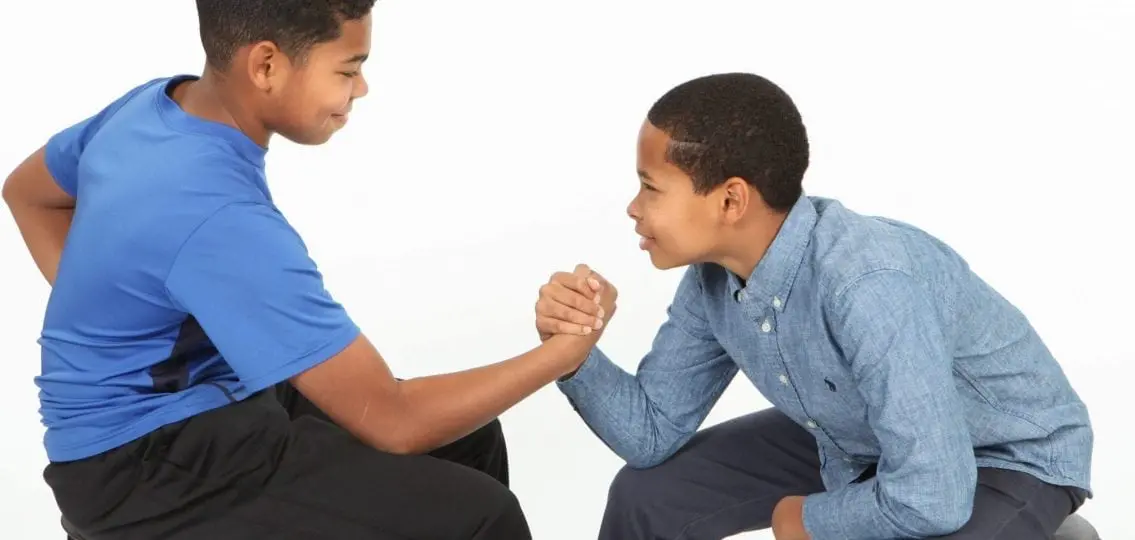Just after I turned 13 years old, my father suffered a very serious heart attack and was taken to Mt. Sinai Hospital in Cleveland Ohio. It was 1965, even before the first heart transplant had been done, when prolonged hospital stays were common. I was deemed too young to visit him, so after an entire month they brought him home by ambulance.

Even though it was many years ago, I can still see the attendants wheeling him on a gurney into our entryway. All three kids and my mom gathered around looking down at this sick man who was my dad. Suddenly he began crying and hugging us and mouthing, “I love you”.
“Huh? What did he say?” I thought.
I wanted to reply, “You do? Really? I had no idea!” I had never seen my father cry before (ok, I do remember his tears five years before when he got the call that my grandmother had died), and he often scolded me for crying. In fact, we had a lot of friction over my emotional displays. So this display of his just blew me away.
And what did he say? He loves us? Really? I had never heard him say it before, and prior to his illness, I generally thought that he disapproved of me. I did not know how to make sense of his words.
So here it is 56 years later and I am sharing this story. Why? Because I believe that this story is, in some ways, typical not only of boys and fathers of my generation but also speaks to present-day male culture.
Today, in my job as a school counselor, moms often confide in me that their sons are sensitive. Why do they do that? In my view, they want to ensure that staff recognize this lesser-seen side of their sons and treat them accordingly. I believe they want to distinguish him from the average boy—the one who is not supposed to be sensitive. In my experience, though, all children, including boys, are sensitive.
The Code
Kids also have their own school personae, and for boys that persona is generally supposed to adhere to what William Pollock (in Real Boys) calls The Boy Code. In short, The Code tells boys: Be stoic and show no weakness; no sensitive boys; give ‘em hell—like Rambo or John Wayne would; dominate others and seek power; and, at all costs, avoid “sissy stuff” like feelings, or anything else viewed as “feminine”.
Boys who violate The Code face stiff opposition from each other and from their culture. When I cried, my own father would threaten to put a ribbon in my hair. Boys become very determined to avoid that kind of shaming and will stuff their feelings instead.
From early childhood into their adult years, boys (and men) believe they have to live within these constraints, which creates problems. Today, we understand that stuffing feelings throughout a lifetime can produce significant stress and lead to a variety of health problems, including heart disease and mental health issues. It can also greatly undermine the quality of their relationships.
Cracking the Code
On the other hand, consider the power of allowing boys to own their feelings. Boys have plenty of feelings and, in my experience, are willing to talk about them if we help. For example, if a boy is sent to me because he has misbehaved, I try to start the conversation in a nonthreatening way. I don’t reprimand him, and I don’t ask how he feels about the situation. Many times a boy does not know.
Instead I might say, “Gee, Greg, what the teacher described is not the way that I usually see you behave. I know that sometimes when I act out, it’s because I’ve had a fight with my wife or because something else is upsetting me. Is there something upsetting you today?” By starting the talk in this way, I give him permission to say something about his own emotional state, rather than focus on what he did wrong.
I have also modeled it for him and asked a simple “yes” or “no” question. If he says, “yes,” then I can ask what happened to upset him. If he says “no,” I can still probe with additional questions that don’t threaten him, or I might offer more information about myself.

The point is that we cannot expect boys to know or share their inner lives if we don’t act as if they have them.
Many boys want to tell us how they are feeling, but we need to provide the opportunities and to help them feel safe. And, of course, we have to encourage them by expressing our own feelings— by saying, “I love you” before a crisis occurs. It makes for happier boys, for happier dads, and for happier families.




